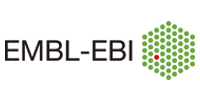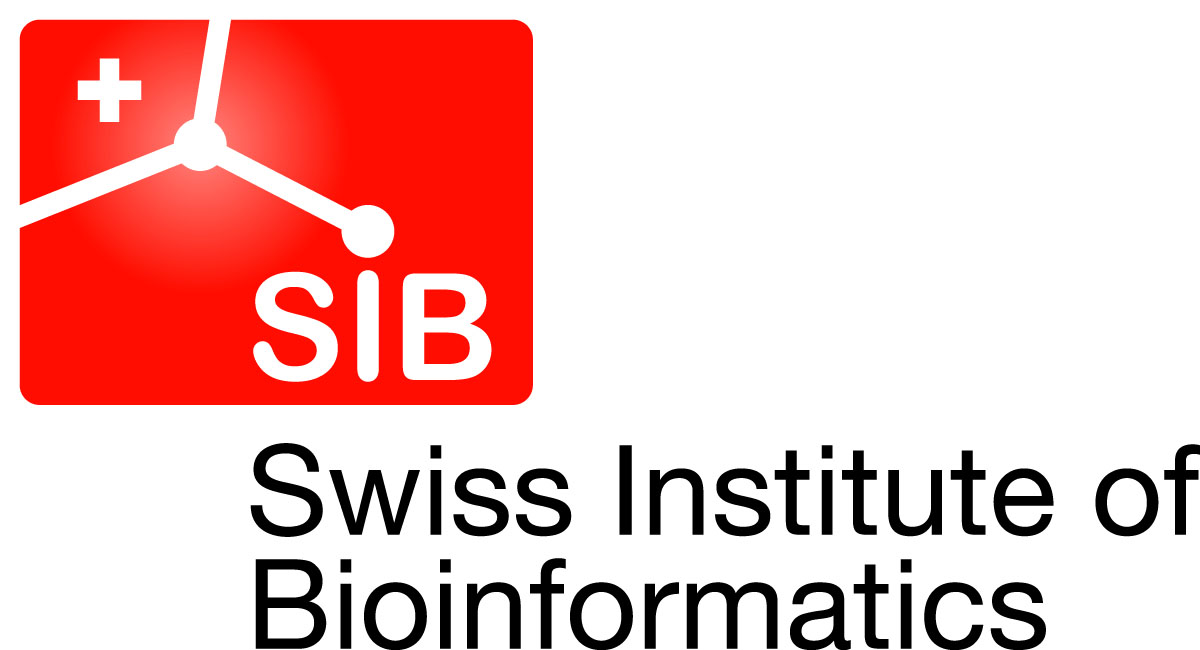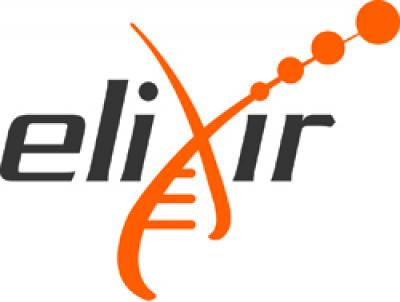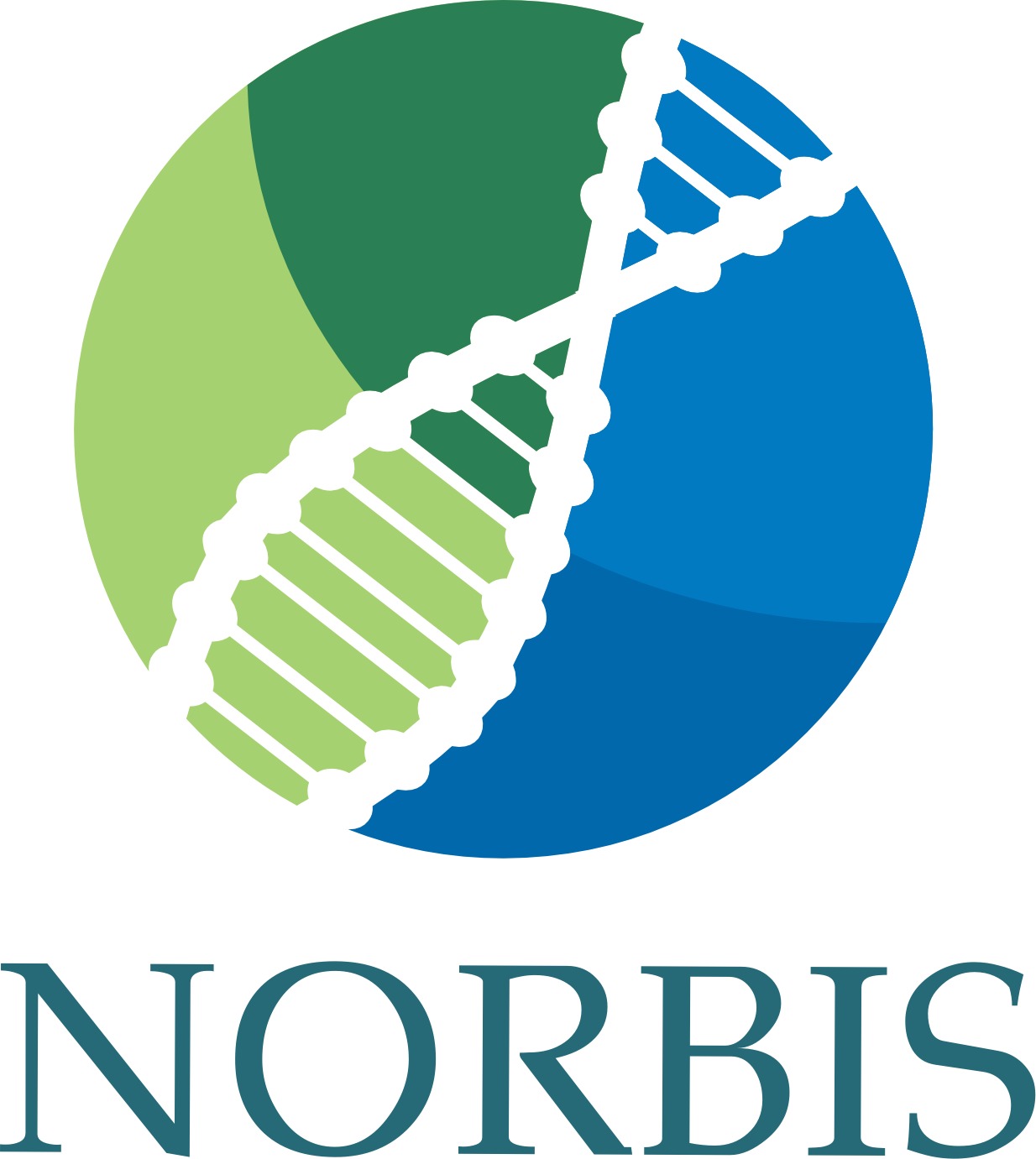Search results
-
e-learning
GO Enrichment Analysis
 • beginnerTranscriptomics
• beginnerTranscriptomics -
e-learning
Writing Automated Tests for Galaxy
 • beginnerSoftware engineering Development in Galaxy
• beginnerSoftware engineering Development in Galaxy -
e-learning
Pfam: Creating protein families
Protein structure analysis Protein sites, features and motifs Multiple sequence alignments Profile Hidden Markov models HMMs Protein families
-
Tutorial
Genome Annotation - Genome Annotation

-
Hands-on: Genome annotation with Helixer
Genomics Genome annotation Galaxy
-
Hands-on: Genome annotation with Maker / Genome annotation with Maker / Genome Annotation
Genome annotation Galaxy
-
Hands-on: Functional annotation of protein sequences / Functional annotation of protein sequences / Genome Annotation
Genome annotation Galaxy
-
Video
RDMbites | RNAseq expression data
RNAseq data -
course materials
Learning structural bioinformatics and evolution with a snake puzzle
•• intermediateBioinformatics Evolutionary biology Molecular biology Protein structure analysis -
Tutorial
Genome Annotation - Genome annotation with Prokka

-
Mantra Research Data Management Training
-
Introduction to Mixed Models
 • beginnerMixed models Roslin Institute
• beginnerMixed models Roslin Institute -
e-learning
Python - Multiprocessing
 ••• advancedSoftware engineering Foundations of Data Science jupyter-notebook
••• advancedSoftware engineering Foundations of Data Science jupyter-notebook -
Learn to Discover (L2D): Data Handling and Machine Learning using Python
••• advancedMachine learning Artificial Intelligence data science Python Programming Bioinformatics Biomedical data -
e-learning
Python - Testing
 •• intermediateSoftware engineering Foundations of Data Science jupyter-notebook
•• intermediateSoftware engineering Foundations of Data Science jupyter-notebook -
Plant and Pathogen Bioinformatics
Allbio Bioinformatics Biological databases Genome sequence analysis Pathogenesis Phytopathogens Plants
-
Kitematic Galaxy-RNA-Workbench

-
e-learning
Python - Functions
 • beginnerSoftware engineering Foundations of Data Science jupyter-notebook
• beginnerSoftware engineering Foundations of Data Science jupyter-notebook -
Recorded webinar
The environmental impact of computational biology
Computational biology
-
Recorded webinar
Croupier, an user-centric meta-orchestrator for cross-platform workflow delivery and execution
Simulation experiment Computational biology Personalised medicine
-
Best Practices in Programming
 •• intermediateprogramming reproducibility bernd rinn group
•• intermediateprogramming reproducibility bernd rinn group -
Introduction to ProteinsPlus

-
Recorded webinar
Introduction to qualitative modelling with MaBoSS
Systems biology
-
Video
Deep Learning using a Convolutional Neural Network
•• intermediateMachine learning
-

Biomedical Sciences Research Center "Alexander Fleming"
The Biomedical Sciences Research Center "Alexander Fleming" is a non-profit research organisation based in Vari, Athens, Greece.
Since the beginning of its operations in 1998, the Center develops basic as well as translational and applied research programs at the cutting edge of modern...
1 training materialBiomedical Sciences Research Center "Alexander Fleming" https://www.fleming.gr/ https://tess.elixir-europe.org/content_providers/biomedical-sciences-research-center-alexander-fleming The Biomedical Sciences Research Center "Alexander Fleming" is a non-profit research organisation based in Vari, Athens, Greece. Since the beginning of its operations in 1998, the Center develops basic as well as translational and applied research programs at the cutting edge of modern biomedical sciences. Currently, the Center hosts 14 research groups distributed in 4 Institutes (Immunology, Molecular Oncology, Molecular Biology and Genetics, Cellular & Developmental Biology). Over the short period since its establishment, BSRC "Alexander Fleming" has gained extensive visibility in the European science arena. Fleming researchers have established transgenic animal models for rheumatoid arthritis, inflammatory bowel disease and multiple sclerosis and these models have served as a basis for multiple collaborations with the international biopharmaceutical industry in the evaluation of novel therapeutic compounds, or as tools for collaborative R&D. The Center is equipped with state-of-the-art Core Units which include: an Expression Profiling Facility, a Flow Cytometry Facility, a Protein Chemistry Lab, a Transgenics and gene targeting Unit, and a BioIT Unit, all of which serve internal collaborations, as well as external partners in academia and industry. The Center also runs an Innovation and Enterprise Unit that facilitates the protection and exploitation of the Center’s research and technologies. Fleming operates its own Animal House, which can house up to 15,000 mice, and has its own complete mouse histopathology unit. Fleming’s Animal house (certified with ISO 9001) provides husbandry of animals and services to the biomedical research community since 2001. It covers an area of approximately 600 m2 within the Center and is equipped with highly automated systems that provide the best possible conditions for mouse reproduction and maintenance. Its main activity is the reproduction and maintenance of mice stocks either of inbred strains or genetically engineered mice, such as transgenic and knockout mouse lines, as well as chemically induced mutants developed by Fleming researchers. The Animal House has a capacity to house more than 18,000 mice and is currently the largest Mouse Unit in Greece in terms of number and variety of mice. The Facility became a full member of EMMA in 2009. Main areas of research: Functional genomics and proteomics; Molecular and cellular immunology; Animal models of human disease; Transcriptional and post-transcriptional mechanisms of gene regulation; DNA repair; Stem Cell differentiation; Epigenetics; Learning and memory; ECM biology. Fields of excellence: Molecular mechanisms of disease (inflammation, cancer, metabolic syndrome, CNS disorders). /system/content_providers/images/000/000/051/original/logo.png?1469458221 -

DeiC – Danish e-Infrastructure Cooperation
DeiC – Danish e-Infrastructure Cooperation has the stated aim of supporting the development of Denmark as an eScience nation through the delivery of e-infrastructure (computing, data warehousing, network connections and auxiliary services), guidance, and initiatives at national level. DeiC is a...
2 training materialsDeiC – Danish e-Infrastructure Cooperation https://vidensportal.deic.dk https://tess.elixir-europe.org/content_providers/deic-danish-e-infrastructure-cooperation DeiC – Danish e-Infrastructure Cooperation has the stated aim of supporting the development of Denmark as an eScience nation through the delivery of e-infrastructure (computing, data warehousing, network connections and auxiliary services), guidance, and initiatives at national level. DeiC is a virtual unit under the Danish Ministry of Higher Education and Science and the result of an agreement concluded between the eight Danish universities and the Danish Agency for Science and Higher Education. For details, see www.deic.dk. /system/content_providers/images/000/000/117/original/deic-logo.jpg?1568809393 -

ELIXIR
Building a sustainable European infrastructure for biological information, supporting life science research and its translation to medicine, agriculture, bioindustries and society.
ELIXIR unites Europe’s leading life science organisations in managing and safeguarding the massive amounts of data...24 training materials0 events (387 past events)ELIXIR https://www.elixir-europe.org/ https://tess.elixir-europe.org/content_providers/elixir Building a sustainable European infrastructure for biological information, supporting life science research and its translation to medicine, agriculture, bioindustries and society. ELIXIR unites Europe’s leading life science organisations in managing and safeguarding the massive amounts of data being generated every day by publicly funded research. It is a pan-European research infrastructure for biological information. ELIXIR provides the facilities necessary for life science researchers - from bench biologists to cheminformaticians - to make the most of our rapidly growing store of information about living systems, which is the foundation on which our understanding of life is built. /system/content_providers/images/000/000/050/original/38675_web.jpg?1476092978 -

ELIXIR Hungary
The Hungarian ELIXIR Node will include twelve different Hungarian universities and research institutes. The participating institutes represent five major scientific focus:
- Human genomics
- Proteomics
- Agricultural genomics
- Veterinary sciences and Ecology.
The Node has not established a...
0 events (2 past events)ELIXIR Hungary http://elixir-hungary.org/ https://tess.elixir-europe.org/content_providers/elixir-hungary The Hungarian ELIXIR Node will include twelve different Hungarian universities and research institutes. The participating institutes represent five major scientific focus: * Human genomics * Proteomics * Agricultural genomics * Veterinary sciences and Ecology. The Node has not established a Service Delivery Plan yet, but it can be anticipated that: * Protein databases (e.g. IUPred, ANCHOR, UniTmp) * Biomarker assesment portals (e.g. G-2-O, Kaplan-Meier Plotter) * Data depositories (e.g. Hungarian Oncogenome Portal) and * Virtual research environments (e.g. Kooplex) will be part of it. Joining ELIXIR, Hungary has the opportunity to strengthen collaboration among its diverse and scattered bioinformatics community. With the coordination of the resources at national level, the aforementioned services and tools will be more visible to the international research community. This goes hand in hand with the development of up to date bioinformatics courses in the education and training field. /system/content_providers/images/000/000/107/original/elixir-hungary.png?1542963208 -

NORBIS, the Norwegian national research school in bioinformatics, biostatistics and systems biology
NORBIS is the Norwegian research school in bioinformatics, biostatistics and systems biology, and was founded in 2015. The school is a collaboration between eight Norwegian universities, and aims to build and unite competences at a national level. We develop new courses, build educational tracks...
0 events (1 past event)NORBIS, the Norwegian national research school in bioinformatics, biostatistics and systems biology https://norbis.w.uib.no https://tess.elixir-europe.org/content_providers/norbis-the-norwegian-national-research-school-in-bioinformatics-biostatistics-and-systems-biology NORBIS is the Norwegian research school in bioinformatics, biostatistics and systems biology, and was founded in 2015. The school is a collaboration between eight Norwegian universities, and aims to build and unite competences at a national level. We develop new courses, build educational tracks and promote a new scientific community for our students. It is our aim that our graduate students will contribute strongly to methods development within the fields covered by the school, and that they will drive and contribute to the most important scientific projects in molecular life sciences in Norway and internationally. The NORBIS research school provides a high quality PhD education through its network of excellent research groups in Norway. We aim to educate method-oriented researchers, who in the next round will develop, teach, train, drive, and support use of bioinformatics, statistical genomics and computational biology within the wider area of molecular life science. /system/content_providers/images/000/000/098/original/400dpiLogo.jpg?1535006729
